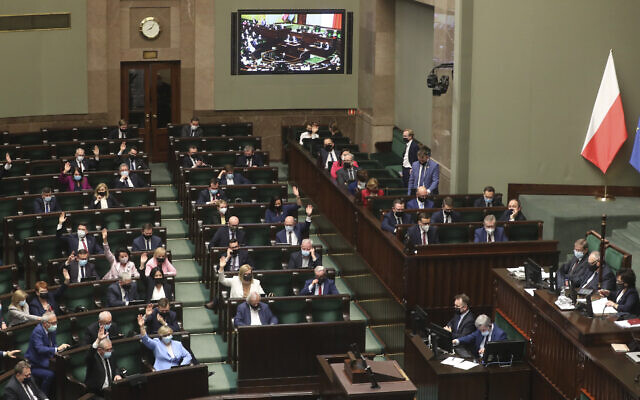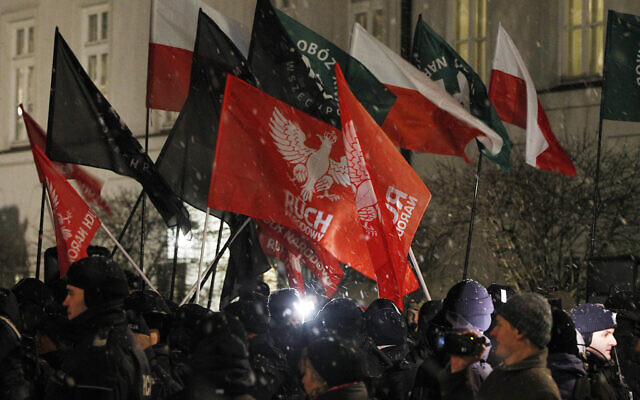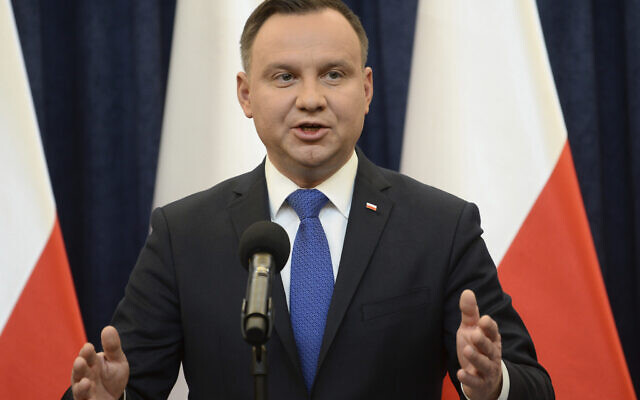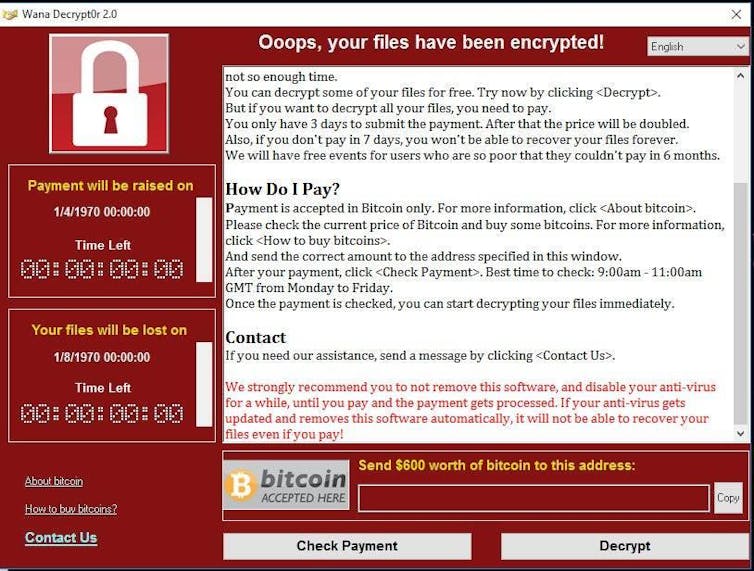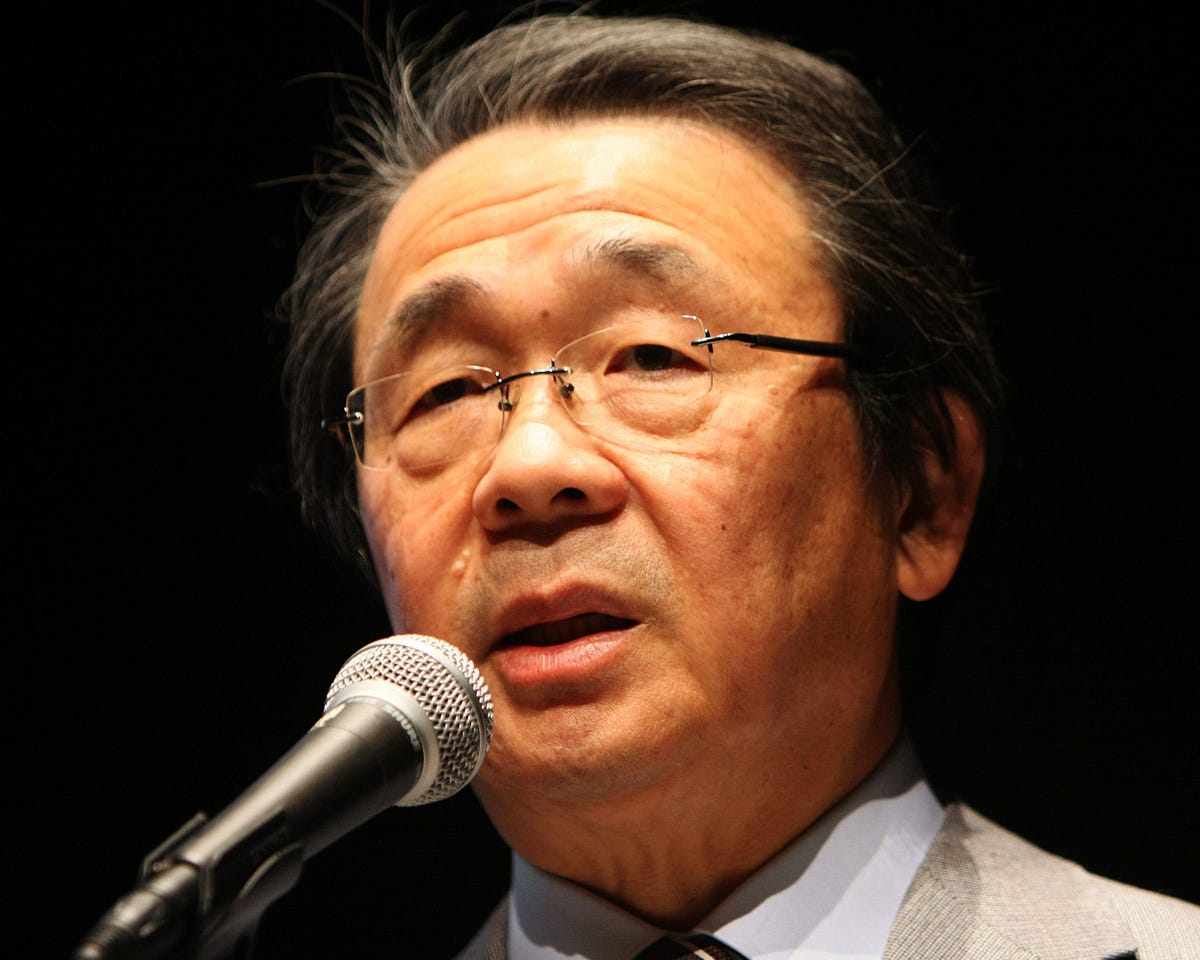
An Egyptian army conscript stands guard outside a polling station before the start of the first day of the 2018 presidential elections, in Boulaq al-Dakrour neighbourhood in the capital Cairo's southwestern Giza district on 26 March 2018, with an electoral poster seen behind inside the station depicting incumbent President Abdel Fattah al-Sisi (C) between late Presidents Anwar Sadat (L) and Gamal Abdel Nasser (R) with a caption reading in Arabic "Support the Egyptian Army against terrorism". [KHALED DESOUKI/AFP via Getty Images]
Arabi21
June 25, 2021
Informed Egyptian sources have revealed specific information and exclusive details about vast secret funds controlled by the Egyptian military institution as part of its financial assets, which are not subject to any sort of supervision. These funds are not included in the general budget of the state or even the armed forces' budget, not least because a large part is kept outside Egypt.
These "secret" funds clarify some of the ambiguities and answer many questions about the sources of Egypt's financial allocations for various national projects.
In response to questions about the source of the funds he spends on projects, President Abdel Fattah Al-Sisi said in February this year that, "The money comes from Egypt, our country… It has been granted to us by Allah the Most Gracious." He stressed that what the regime is doing "is beyond the people's capacity, above the Egyptian state's capacity, and you are still asking about the source of the funds."
The truth is bigger than Sisi
At the 8th National Youth Conference in September 2019, Sisi responded to the huge commotion caused by artist and contractor Mohammed Ali by saying, "The truth is bigger than me… Bigger than me." This prompted some to wonder what this bigger truth is that he cannot reveal.
According to the sources, there is a general budget allocated for the armed forces that is deposited in a special account in the Central Bank of Egypt (CBE) and some other (unnamed) banks. They manage it quite independently, but there is a secret budget the details of which are known only to a very limited number of senior military commanders. This budget includes many items, most importantly Operation Urubah 90, special funds, dollar deposits and other items that are not represented on the board of directors of any economic entity controlled by the army.
READ: Biden writes another blank cheque for Sisi
Article 203 of the Egyptian Constitution is clear that: "A National Defence Council is to be established, presided over by the President of the Republic and including in its membership the Prime Minister, the Speaker of the House of Representatives, the Minister of Defence, the Minister of Foreign Affairs, the Minister of Finance, the Minister of the Interior, the Chief of the General Intelligence Service, the Chief of Staff of the armed forces, the Commanders of the Navy, the Air Force and Air Defence, the armed forces Chief of Operations and the Head of Military Intelligence."
This council is responsible for looking into matters pertaining to the methods used to ensure the safety and security of the country, and discussing the armed forces' budget. This incorporated as a single figure in the state budget. The council's opinion must be sought in relation to draft laws on the armed forces.

Egyptian walk past a huge poster of Egypt's former Defence Minister and armed forces chief General Abdul Fatah Al-Sisi outside the High Court in downtown Cairo, on 27 March 2014. [KHALED DESOUKI/AFP via Getty Images]
Its other jurisdictions are defined by law. When discussing the budget, the head of the financial affairs department of the armed forces and the heads of the Planning and Budgeting Committee and the National Security Committee at the House of Representatives shall be included. The President of the Republic may invite whoever is seen as having relevant expertise to attend the council's meetings but they will not have a vote.
In April 2013, the armed forces' general budget was first included in the state budget for the fiscal year 2013-2014. The total military budget was estimated at 31 billion Egyptian pounds compared with 27 billion in the 2012-2013 budget.
In preparation for the ground offensive to liberate Kuwait in 1990, Saudi Arabia and Kuwait provided the Egyptian armed forces with a grant of $1.1 billion. Former President Hosni Mubarak agreed that the armed forces would invest these funds for their own benefit provided that the money would be exploited to improve their efficiency.
The funds were deposited in various accounts in Greek and Swiss banks. Two years after the liberation of Kuwait, the Minister of Defence, Field Marshal Mohamed Hussein Tantawi, obtained Mubarak's agreement to release 150 million Egyptian pounds to be distributed as rewards to commanders and officers, especially after questions were raised among military personnel about the Saudi grant.
There was also a sub-account allocated by the Saudi armed forces for funds to be granted as allowances for food, transportation and personal expenditure for officers and soldiers who participated in Operation Urubah 90. The sources confirmed that commanders gave officers and soldiers small monthly amounts while keeping the allocated funds for themselves.
Brigadier General Fathy Zaghlul, the operations coordinator in Hafr Al-Batin in Saudi Arabia, was responsible for this sub-account. After the Kuwait war it was discovered that Zaghlul had made an arrangement with his brother to go to Switzerland to open a bank account. He then transferred 32 million Egyptian pounds from the food, transportation and pocket allowances into his brother's Swiss account.
This fraud was discovered, but it took several months to find Zaghlul. He was ordered to return the looted funds but the military institution could not get the money out of the bank account. The then Minister of Defence, Youssef Sabri Abu Taleb, did not initiate any legal action against Zaghlul for fear of the scandal it would cause. Instead, Zaghlul was forced into retirement.
Such funds were still being invested abroad throughout Mubarak's term of office under the personal supervision of Tantawi and Major General Mahmoud Nasr, who was head of the Financial Affairs Authority for the Armed Forces, monitored by military intelligence. A portion of the money was invested in various projects abroad, as well as in transactions and speculations that were not included, of course, in the official records of the armed forces' economy or that of the state.
READ: New death sentences in Egypt demand us to seek clemency for the accused
"As soon as the 2011 January Revolution broke out," explained the sources, "Tantawi stopped all transactions on this account, which at that time was worth about $16 billion, as he wanted to transfer it to the official account of the armed forces in Egypt out of fear of the repercussions of the revolution. This forced him to reveal the truth about the amount and his position to the military council to involve it in the decision."
However, General Nasr suggested at one of the meetings of the Supreme Council of the Armed Forces that these funds should not be touched, nor returned to Egypt, under the pretext that the internal political conditions were not favourable. Out of fear that this matter would be revealed by the media, he proposed an alternative plan to say that this amount was deposited abroad for the purpose of sealing huge arms deals that did not take place because of the revolution. Tantawi was convinced of this idea and the amount remained abroad, but he made steady profits by depositing the money in the bank without making any transactions, or trading and speculating.
During the period leading up to the 2012 presidential election, Tantawi apparently started to have more concerns about depositing funds abroad, not least in case the incoming president was not on the same page as the military council. He was alarmed about General Ahmed Shafik's victory, because Shafik knew a lot about military affairs. Even though he had been away from the military institution for years, he maintained good relations with some senior officers, intelligence chiefs and former presidency officials.
General Nasr proposed a plan to Tantawi to transfer the affiliation of the National Investment Bank (NIB) to the Ministry of Planning, with the aim of freeing the institution from the Central Bank's supervision, and then appoint a consensus minister of planning; he wanted to task Ashraf Al-Arabi with this. Afterwards, and according to the same plan, the funds would be transferred to the NIB. Hence, Tantawi issued decision No. 285 of 2012 which stipulated the transfer of the bank's affiliation to the planning ministry as a first step to bring the funds from abroad.
The NIB is one of the economic and investment branches of the Egyptian state. It was established under the provisions of Law No 119 of 1980 for the purpose of financing all projects included in the general economic and social development plan of the State, by contributing to the capital of these projects or extending them through loans or other means, and monitoring their implementation. The bank describes itself as "a tool that the state can use to intervene in controlling the markets and implement its economic and social policies."

10 years on from the Egyptian Revolution
[Mohammed Sabaaneh/Middle East Monitor]
As one of the leading financial and development institutions with massive potential and capabilities, the NIB is required to engage in events as a source and a recipient of influence and play an important role In light of recent economic changes in the local and international scene.
Following Mohamed Morsi's victory in the presidential election, Tantawi felt reassured that Shafik had lost and so did not feel the need to bring the money back from abroad. Nasr persuaded him to wait for some time under the pretext that they could convince the Muslim Brotherhood that there was good reason for keeping such a large amount of money abroad.
Meanwhile, Ashraf Al-Arabi actually became a minister. Not quite as planned, though; he was appointed in the Brotherhood government and the situation was not fully secured despite the prior agreement between them. This is why the decision to return the amount was postponed, despite the unjustified decision to transfer the NIB's affiliation to the planning ministry.
The sources pointed out that after 3 July, 2013, the coup leader, Minister of Defence Al-Sisi, met with the Military Council to thrash out the plan for him to run for the presidency, while telling it that all bank accounts, surpluses and profits of the armed forces would be at his personal disposal as President of the Republic and Supreme Commander. This was setting a precedent.
READ: Egypt to buy $4.5bn worth of Rafale fighter jets from France
The financial situation of the armed forces when Sisi became Minister of Defence in August 2012 can be summed up as follows: 164 billion Egyptian pounds of accumulated budget surpluses; $16 billion in deposits abroad (Urubah 90); and 3.6 billion Egyptian pounds in revenues from economic activity. The profit for the year's economic activity has been estimated at 113 million Egyptian pounds.
After Sisi took office as president officially in 2014, this file was assigned to Major General Nasr, who followed his time as head of the military's Financial Affairs Authority by becoming a financial advisor to President Al-Sisi in June 2019. Accordingly, Nasr was able to transfer the authority to approve disbursing all armed forces' funds to Sisi, who entrusted him with the task of collecting profits on a regular basis.
The sources maintain that the secret Urubah 90 deposit is still in a foreign bank account.
Army bank accounts abroad
A leak broadcast by the opposition Mekameleen TV channel in February 2015 indicated that Sisi requested Major General Abbas Kamel, who was serving as his office manager, to inform the former Saudi Royal Court chief Khaled Al-Tuwaijri to deposit $30 billion in aid from Saudi Arabia, the UAE and Kuwait in the armed forces' account. Kamel asked how such a large amount could be transferred to that account. Sisi is said to have replied that it could be done by pumping it directly into the armed forces' accounts in those countries; in other words, into the accounts of the military attaches in the Egyptian Embassies in Riyadh, Abu Dhabi and Kuwait City.
The sources noted that some funds related to the armed forces' economic activities abroad are always placed in the military attaches' accounts, and not in private bank accounts, of course.
One of the reasons why Sisi dismissed his son-in-law, Lieutenant-General Mahmoud Hegazy, who served as chief of staff, was that the latter had reservations about managing these secret funds in this way. Hegazy apparently preferred to conduct the process in a legal manner. He was also in almost permanent disagreement with Kamel, who previously held the position of head of the defence attaches branch. Although they served in the army together, their conduct and actions were completely different.
The armed forces' massive funds
Al-Sisi is said to have sold land plots belonging to the armed forces between 2018 and 2020, along with the Suez and Ain Sukhna Roads, the Ismailia Suez Road and the Yellow Mountain, for 6.8 billion Egyptian pounds. The carry forward surpluses of the armed forces' budgets jumped to 342 billion Egyptian pounds this year, with a 200 billion increase since Sisi took charge of the Ministry of Defence. This entire amount, which has been transferred to a special presidency bank account, is under the control of the president.
"All these revenues, profits, invested funds, deposits and surpluses are increasing very rapidly, because the armed forces receive every penny they spend on projects, in addition to the government profits," added the sources. "However, in spite of cancelling subsidies and doubling the prices of all services, the budget deficit jumped to about 450 billion Egyptian pounds instead of decreasing, an amount paid annually by the government in dues for the armed forces."
Sisi instructed the defence minister to evacuate the area located on the other side of Salah Salem Street, including the main tank repair workshop, the main vehicle workshop, the railway station for the armed forces and the veterinary hospital, in preparation for selling these properties, along with the Military College. The price was set at nearly 1.1 trillion Egyptian pounds, under the supervision of the Sovereign Fund of Egypt.
Since 2015 Sisi has seized the accounts, revenues and profits of the Arab Organisation for Industrialisation (AOI) via the Ministry of Military Production. He has also seized the profits of the contracts allocated by the ministry to buy materials locally and abroad, separately from its factories. The president's profits are estimated at 2 trillion Egyptian pounds.

Billboards of Egyptian President Abdel Fattah al-Sisi are seen in Cairo, Egypt [Mohammed Bendari/Apaimages]
"Military prisons, along with some civilian prisons, have been implicated in the furniture industry in an extensive and professional manner, in order to control the business," said the sources. "Thus, the regime agreed with a large number of furniture dealers to supply them with furniture with the aim of paralysing the original and traditional furniture industry in Damietta governorate in favour of the New Damietta, in which the army has secretly invested."
The profits ensured by the military prisons are transferred to a special account controlled by the Financial Affairs Authority for the Armed Forces, and cannot be used without Sisi's approval and the defence minister's signature. This is in addition to revenues generated by the furniture workshops led by the Second Field Army, the Third Field Army, the Northern Region, the Red Sea Sector and the workshops of the General Services Authority and Missions Authority, as well as the quarries.
The Central Auditing Organisation's monitoring mission
It is noteworthy that in March 2021, General Nasr stated that all the activities of the armed forces' production base are subject to the oversight of the Central Auditing Organisation (CAO), which commits to hundreds of oversight committees annually. He presented scanned copies of the first pages of the CAO's reports on the activities of the various companies affiliated with the armed forces, especially the National Service Products Organisation (NSPO).
However, private sources completely denied the validity of Nasr's claim. "None of the military economic activities are subject to any supervisory or even regulatory authority, not by the CAO, the Administrative Control Authority (ACA) nor the Parliament or the Ministry of Finance, despite the fact that very limited formal procedures took place in the past," they insisted. Indeed, everyone is well aware that there are certain things that cannot be addressed or approached, because this area is a major red line.
How, in this context, is it possible to monitor companies and transactions without even knowing they exist?
READ: Egypt biggest purchaser of Italy weapons systems, once again
We will fight for our projects
To explain the reason why senior officers of the armed forces insist on carrying on with these declared and undeclared economic activities, and their absolute refusal to apply any real oversight measures to supervise the flow of profits, the sources cited previous statements issued by Nasr after the outbreak of the revolution. "We will fight for our projects, this is a battle that we will not leave behind," he said. "The effort that we have been putting in for 30 years will not be destroyed by anyone else, and we will not allow anyone else to approach the projects of the armed forces."
The armed forces' economic activities were initiated in the 1960s, especially after the 1967 Six Day War against the occupation state of Israel, during which there was a campaign of popular donations to support the military institution and contribute to rebuilding it. This prompted the armed forces, pushed by feelings of humiliation, to have its own independent revenues and budgets that have been getting bigger ever since, to be exploited in legitimate and illegitimate ways that deviate from the norm, especially after the military institution became a deep state in its own right.
It is noteworthy that the defence ministry rejected a request by the then President Mohamed Morsi to allocate $1.5 billion to help the government deal with the aggravating shortage in fuel and other basic commodities. This illustrates perfectly the significant difference in the way that the armed forces as an institution dealt with Morsi and the way it deals with Sisi.
This report appeared in Arabic in Arabi21 on 23 June 2021
The views expressed in this article belong to the author and do not necessarily reflect the editorial policy of Middle East Monitor.







